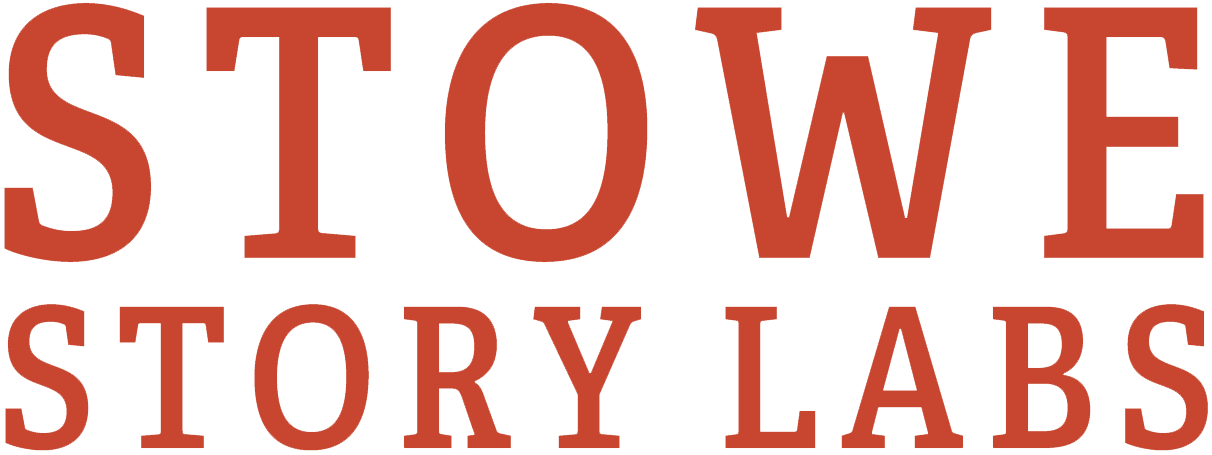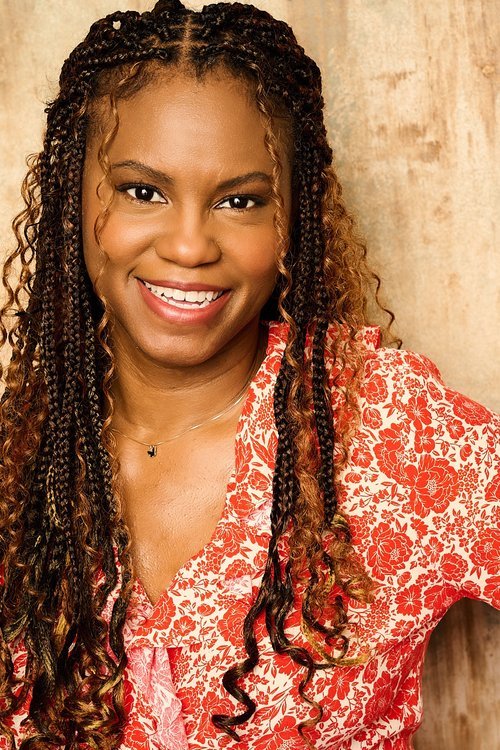VALUE OF LIVED EXPERIENCE
In-Conversation Interview with Screenwriter, Performer, and Stowe Mentor Brandi Nicole
by David Rocchio
DR: Can you tell us a little about yourself and your background?
Brandi mentoring at the 2024 Santa Fe Writers’ Retreat
BN: I am a naturally curious person about so many things, and that curiosity has led to me living what feels like many lives. From professional wedding planning, to cookie decorating, to getting licensed as a private investigator, I follow my interests wherever they lead, and inevitably those life experiences make their way into the stories I tell as a writer and performer. For the last few years the TV writing world has paid the bills, and I’ve made a handful of indie shorts on the side, to satisfy my desire for creative control (something you don’t get in TV until you’re running your own show - and even then it can be tricky). I’m also a mom of three, originally from SoCal, and have been living in Memphis for the last 5 years.
DR: What interests you about TV writing?
BN: I grew up watching a lot of TV, and even now it’s still one of my favorite pastimes. I love getting to spend a lot of time with complex characters and watch them evolve (or devolve) slowly over multiple seasons, changing who I’m rooting for or being able to better understand why a character behaves the way they do the more we learn about their backstory over time. I love how I can find myself relating to characters who come from incredibly different backgrounds and circumstances. I love the group effort that is TV writing. Working collaboratively in a room is the most fun job I’ve ever had (and I’ve had many), and while it can be a pressure cooker at times, I am often amazed at how this is an actual job that pays actual money, and really good money at that - if you can hang on long enough to go from one show to the next. (Which can feel be Herculean at times, and often requires the help of community for emotional support, among other things.) And I especially love that the work we do (usually) gets made and put out into the world for the audience to engage with.
Actor Annaleigh Ashford on the set of Happy Face
DR: How has the world you live in and the life you experience supported/guided/shaped your work?
BN: All of my original work comes from personal experience, some being more autobiographical than others, because writing helps me to better understand the world, and to understand myself. Sometimes that means writing out of rage or spite, sometimes out of love or (more often) infatuation, sometimes out of grief, and sometimes out of sheer curiosity when I stumble across a person or subject that makes me want to go down a rabbit hole and learn as much as possible. And since the world as I’ve experienced it has been a mix of both beauty and brutality, my work often holds the same.
DR: I know you were in the HBO Access Writers Program. How did who you are help you navigate the program so well?
BN: In addition to being good on the page, the TV writing fellowships want writers who have a strong sense of who they are, what kinds of stories they want to tell, and how their life experiences have contributed to that. And for good reason - because when you’re in a room, you’re using those experiences as fodder for your show. So my willingness to open up during the interview process about difficult things that were happening in my life that I wanted to explore in my work, showed the HBO execs that I was willing to be vulnerable in a way that would encourage my cohorts to offer their own vulnerability in turn. And since then, that willingness (when warranted) has served me well in the rooms I’ve worked in.
Nicole staffed to write on YOUR HONOR
DR: And what have you've worked on? How do you feel you are uniquely suited to support the telling of those stories?
BN: I’ve worked in one-hour drama rooms thus far. “Happy Face” (about the Happy Face serial killer) was my first room where I was the Writers’ Assistant and was given the incredible opportunity by the showrunner, Jennifer Cacicio, to co-write an episode. That led to me being the WA for some additional mini rooms that were in the same production camp as Happy Face, under Robert & Michelle King. I then ended up being officially staffed on season two of the legal/gangster drama “Your Honor”, as well as the serialized police drama “Ballard.” With each room I’ve tried to find connections between what the characters are experiencing with experiences I’ve had in my own life, to try to imbue as much authenticity into them as possible, while still keeping in mind that the motivations for their behavior and the decisions they’ll make may be wildly different from those of my own. That’s why whenever I’m up for a job, the first thing I ask myself as I read the pilot (or whatever materials are available), is “what is my way in?”
DR: What advice would you give to writers who want to work in rooms?
BN:
study, study, study!
Reading scripts is the best form of education and is free! Read pilots consistently. Study them. Watch them to see how they deviated from the script. And try your hand at speccing a show you love, to see how well you can mimic their voice (both in dialogue and in formatting) since that is your main job while on staff.
Watch current seasons of TV and note which shows you’d be a good fit for based on taste, sense of humor, life experience, etc. and if you don’t have a sample that would be appropriate to submit to get staffed on that show, start brainstorming one.
Work on two solid samples (even if the 2nd one is a feature or a play), so that you’ll have something to send over if they ask to read more.
Focus on networking across rather than vertically - your peers will be invaluable to you on multiple fronts (including getting hired!) as you all move up in the industry together.
And finally, make plans to be in LA or (on a much smaller scale) NYC. Though I live in Memphis now, I spent years in LA building community while working on my craft, and those connections are still fertile to this day. I’ve been lucky enough to work primarily in Zoom rooms, but those are becoming few and far between. So if you want to be staffed, you should be clear about what is realistically possible from where you are, and then make a game plan accordingly.
Brandi Nicole
Brandi Nicole is a writer/performer whose work centers on multidimensional, underestimated women. While she started as an actor, she fell in love with the storytelling process after writing & producing Muted, a short film about media discrepancy when a child of color goes missing, that was acquired by HBO, selected for the Ryan Murphy Half Initiative Program, and garnered over 175k views on YouTube via Issa Rae’s #ShortFilmSundays. She has since written or produced a handful of shorts as an indie filmmaker under her Rainy Day Bliss production banner. On the TV side, Brandi got her start as an HBO Writers Fellow, where she learned the importance of honing her voice by bringing her full self to her work. She did just that as a staff writer and recurring character on season two of Your Honor, a legal drama from Showtime that amassed over one billion views once it moved to Netflix. From there she went on to write for the Bosch spin-off Ballard, a serialized police procedural set to premiere on Amazon in 2025. Next year will also launch the long-awaited Happy Face, the Paramount+ true-crime series that gave Brandi her first episodic writing credit.
Interview by David Rocchio, Stowe Founder & Director
David Rocchio is an attorney, writer, and Emmy-nominated filmmaker. David conceived and co-produced with James Rogan The Gun Shop, an Emmy-nominated one-hour documentary commissioned by the UK Channel 4’s Cutting Edge series, where it premiered prime time and was awarded top reviews. It then played worldwide. David’s award-winning short films have played internationally, including the Cannes Short Film Corner and Italy’s Capalbio International Short Film Festival (Best of Capalbio). His most recent short film Gary, Jr. was produced and directed by Bertha Bay Sa Pan.
In addition to creating his own work, David founded and runs the nonprofit Stowe Story Labs, which is dedicated to helping top emerging screenwriters and filmmakers get work made and seen. Now in its twelfth year, Stowe works with approximately 200 emerging talents annually at labs, retreats, workshops, advanced development programs, mentoring programs, and film production programs.
David’s last job as a lawyer was as Legal Counsel to Vermont’s then-Governor Howard Dean. He was a nationally certified EMT and member of the Mt. Mansfield Ski Patrol (Stowe, Vermont) for 22 years, and he remains an avid backcountry skier. David lives in Stowe.






